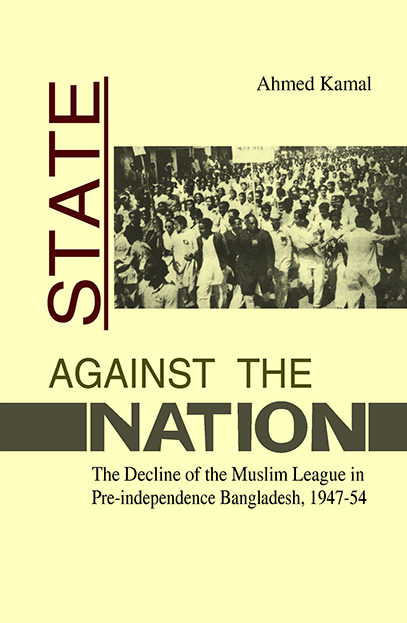
State against the Nation: The Decline of the Muslim League in Pre-independence Bangladesh, 1947-54
2016 https://uplbooks.com/shop/9789845062374-state-against-the-nation-the-decline-of-the-muslim-league-in-pre-independence-bangladesh-1947-54-8278 https://uplbooks.com/web/image/product.template/8278/image_1920?unique=56f7a2e
| Language: English |
Tags :
Book Info
This book looks at the career of the Muslim League in East Pakistan (now Bangladesh) from 15 August 1947, the day it assumed political power from the Raj, to the election of 8 March 1954, when it was massively defeated by a newly-formed United Front. Exploring the decline of the popularity of the League is an important objective of the book. In the process, it also seeks to explain the nature of ‘politics’ in East Pakistan, in particular, the emergence of a state bureaucracy with paternalistic and undemocratic tendencies. The process through which the bureaucracy got stronger also entailed the alienation of the people from both the government and the League. The themes are highlighted in the series of chapters devoted to specific and important issues. An examination of these issues usefully complements what students of East Pakistan politics have (rather selectively) emphasized so far: the Language movement of the 1950s, the crisis of federalism and the problems of two economies. An argument is eventually built up on the nature of the state and ‘nationhood’ in East Pakistan. The preponderance of the bureaucracy in the colonial style of governance and the peculiar history of Muslim nationalism in East Pakistan are seen as factors that contributed significantly to disrupting the process of nation-building.

Ahmed Kamal
Ahmed Kamal has been teaching History at the University of Dhaka since 1972. He obtained his PhD from the Australian National University, Canberra. He was a visiting scholar at the Bangladesh Institute of Development Studies from 1977-1979. He spent a year in the Yale University, USA, as Post-doctoral Fellow in the Agrarian Studies Program. He was also a Visiting Fellow in the University of Michigan, and Arbor, USA and York University, Toronto, Canada. He has published articles in academic journals an edited volumes and contributed research papers in many international seminars. He has also published Kaler Kallol, Itihash, Unnayon o Rajniti a collection of Bengali essays. Currently Professor Kamal is Chairman of the Department of History and also Director of


